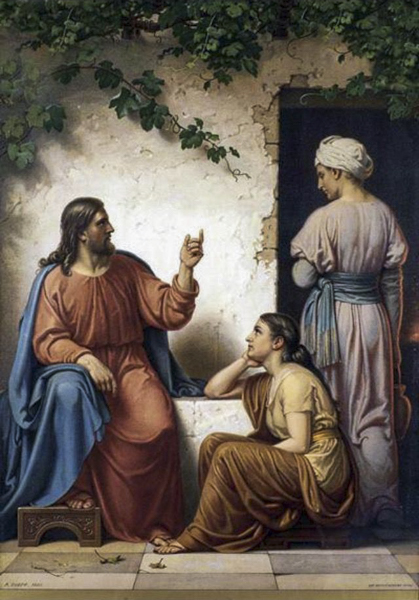
Docility sounds like the title of a character study of wimps. As a personal habit, docility has gotten a bad rap. Sorry to say, some believers seem to think that being docile means that they should decline making common-sensed decisions and taking responsibility for them. As students they may have been clobbered for independent thought or action. As adults, they prefer to invoke the name of some superior or boss when asked to do or not do something. They always, you know, just follow orders.
Docility, however, is an honorable moral virtue and a very balanced, mature one at that. Its linguistic root comes from the same Latin word that has given us words like doctrine and docent. Docility is the quality of teachability. We’re docile when we make decisions based on reliable information and the experience of trusted authorities. We’re docile when we realize that we don’t know it all and that there are resources to guide us. When we’re docile, we engage intellect, experience, intuition, and the advice of wisdom figures in our judgments.
While being self-taught is often praiseworthy (think Abraham Lincoln), there is also a danger to being one’s own definitive guide. There’s an old saying that the one who has himself or herself as a spiritual director is a fool. The reason, of course, is that we human beings have a remarkable capacity for kidding ourselves. We can con ourselves into thinking that just about anything is God’s will for us or is good for human society. We earthlings have a knack for making God into our own image and likeness. That, we may suspect, is why we are at a state in society that resists the idea that there are moral imperatives and timeless social norms.
Docility is a virtue which assures us that being pro-life and pro-family means reclaiming what is wise and good. This January, as before, we have prayed for world peace and joined pro-life rallies in Columbia or Washington. We’ve stood up for the right to life from womb to tomb and we’ve affirmed God’s designs for marriage and family. We’ve taught that lasting peace comes only when civil conduct is just and right.
We do so because we’ve learned that freedom is not license but, as St. John Paul II says in The Splendor of Truth, a gift to humanity which must be based on truth — God’s truth. Freedom, he notes, must be “cultivated responsibly,” and exercised with an emphasis on self-giving. It is tragic, he insists, when we distort the ideal of freedom to fit the whim of the moment. That’s how we end up with the contemporary ethic (and politics) of whatever-floats-your-boat.
Docility defers to Scripture, magisterial tradition developed under the guidance of the Holy Spirit, and the inspired lives of heroes, saints, and martyrs. These teachers give us the strength to know that some things touted as personal freedoms and human rights are dead wrong.


